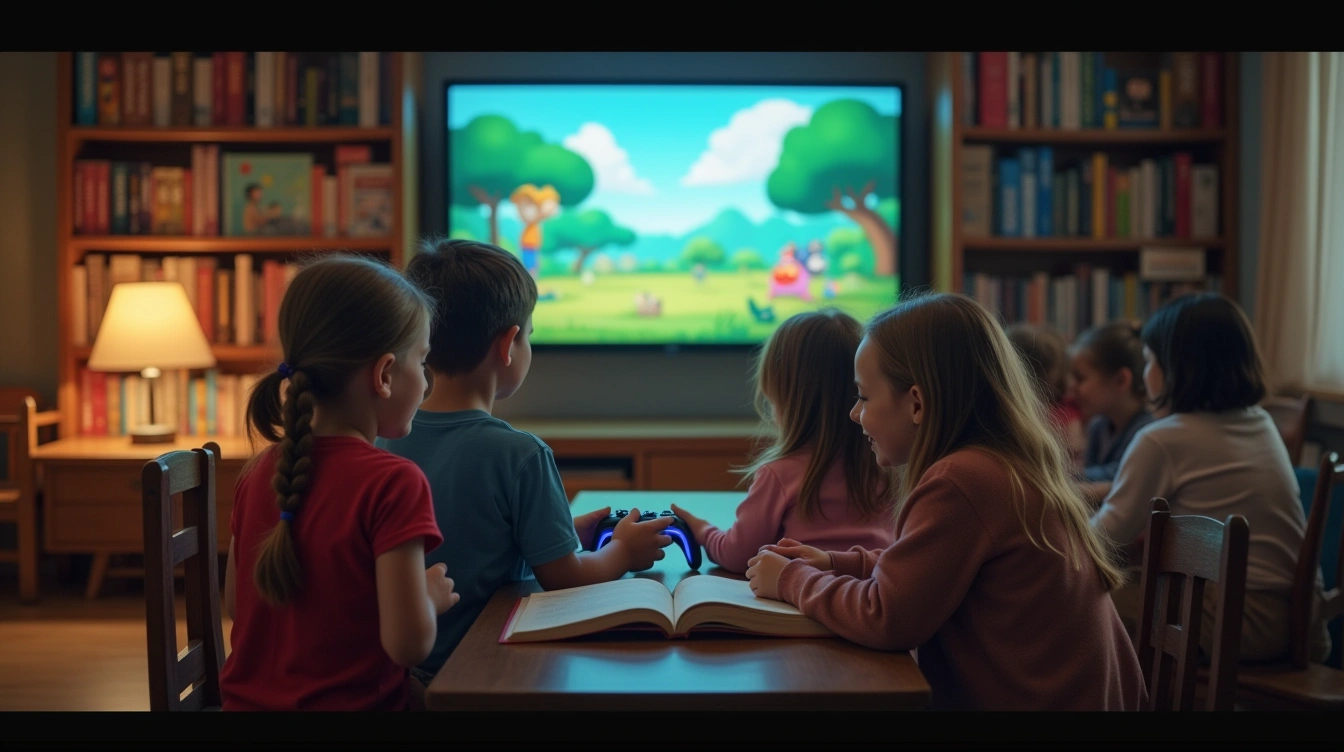Actionable Strategies to Boost Educational Value in Children’s Video Games
To truly enhance educational value in children’s video games, parents can start by selecting titles that are age-appropriate and aligned with school curricula. This ensures the content supports and reinforces what children learn in class, making learning through games both relevant and effective.
Another crucial parental strategy is to encourage co-play—playing alongside children. This guided play approach allows adults to steer the gaming experience, ask meaningful questions, and relate in-game challenges to real-life concepts. Co-play turns gaming from a passive experience into an interactive learning session.
Also read : How Has the History of Video Games Shaped Modern UK Computing?
Finally, integrating explicit learning objectives with the game’s narrative or mechanics amplifies education without sacrificing fun. Parents should seek games where skills like problem-solving, literacy, or math are woven into the gameplay. When kids see practical applications of these skills in the game environment, retention and engagement improve substantially.
Together, these strategies create a balanced approach where educational video games become powerful tools in developing critical skills, providing both entertainment and meaningful learning outcomes.
Additional reading : What innovations are emerging in UK gaming hardware?
Evidence-Based Insights on Educational Benefits
Research on video games consistently demonstrates notable positive effects on learning outcomes and cognitive development. Studies indicate that well-designed games can enhance problem-solving skills by requiring players to think strategically and adapt to new challenges. These cognitive demands encourage players to develop sharper reasoning abilities, which can translate into improved academic performance.
Moreover, benefits of gaming extend beyond cognition. Video games often promote social interaction, especially multiplayer formats that require cooperation and communication. This social engagement helps players build teamwork skills and emotional understanding, crucial aspects of cognitive development.
However, it is important to recognize limitations in current research. Many studies focus on short-term effects or particular game genres, leaving gaps in understanding how long-term gaming influences broader educational outcomes. Further research is needed to clarify optimal gaming durations and types for maximizing benefits.
Ultimately, exploring research on video games highlights a promising avenue for enhancing education when integrated thoughtfully. Leveraging gaming’s engaging nature with targeted educational content can foster improved learning outcomes and richer cognitive skills development.
Practical Tips for Parents and Educators
Balancing screen time is crucial for children’s development. Setting clear, consistent limits helps maintain a healthy routine. For example, parents can establish daily or weekly time caps, ensuring gaming does not interfere with sleep, homework, or physical activity. Consistency supports children in understanding boundaries and promotes responsibility.
Selecting the right games is equally important. Parents and educators should focus on game selection that matches age appropriateness and cognitive challenge. Games designed with educational value can foster skills such as problem-solving and creativity, making screen time purposeful rather than purely recreational.
Encouraging discussion after gameplay lets children reflect on what they learned, deepening comprehension and connecting video game experiences to real-world skills. Educators might prompt students with questions like, “What strategy worked best for you?” or “How did you solve that problem?” This engages critical thinking and reinforces learning beyond the screen.
Finally, continuous monitoring of game content ensures materials remain suitable and stimulating. By reviewing games together, parents and educators can guide choices that motivate growth while avoiding inappropriate content. This proactive approach leads to positive gaming habits centered on learning and enjoyment.
Recommended Educational Games and Resources
Explore engaging tools to enhance learning
When searching for the best educational games, focusing on those designed with clear learning objectives is key. High-quality resources often combine fun gameplay with measurable educational outcomes. Game lists for learning typically feature titles that develop skills such as math, literacy, critical thinking, and creativity.
Notable resource recommendations include apps that adapt to a child’s progress, fostering personalized learning experiences. For example, many game developers create content aligned with school curricula to support classroom concepts. Digital platforms offer extensive libraries, often categorised by subject and age group, making it easier for parents and educators to find suitable options.
A few standout examples include interactive math puzzles that challenge problem-solving, storytelling games that enhance reading comprehension, and coding games that introduce computational thinking. Using these tools regularly can improve engagement and retention.
Parents and educators should consider platforms that provide progress tracking and feedback mechanisms, ensuring that learning is monitored effectively. By integrating recommended educational games and resource recommendations thoughtfully, children receive an enjoyable and productive learning experience, laying a solid foundation for academic success.
Balancing Play, Learning, and Wellbeing
Striking the right screen time balance is essential for combining enjoyment and education effectively. While game-based learning captivates children with engaging content, it’s crucial to encourage physical activity alongside digital play. Activities like outdoor sports or creative offline projects complement screen interactions, promoting holistic development and preventing sedentary habits.
Developing healthy habits around gaming means integrating breaks and setting consistent limits. Mindful gaming supports emotional wellbeing by preventing overstimulation and reducing stress. For example, scheduling downtime after focused game sessions can help children relax and avoid burnout.
Parents and educators can foster this balance by guiding children to alternate between digital learning and hands-on experiences. This approach nurtures both cognitive skills and physical health, ensuring that playtime is both fun and beneficial. Encouraging self-awareness about screen use empowers kids to enjoy technology responsibly.
Balancing screen time with active, offline activities not only enriches learning but also strengthens emotional wellbeing, creating a sustainable gaming experience that supports growth and happiness.






